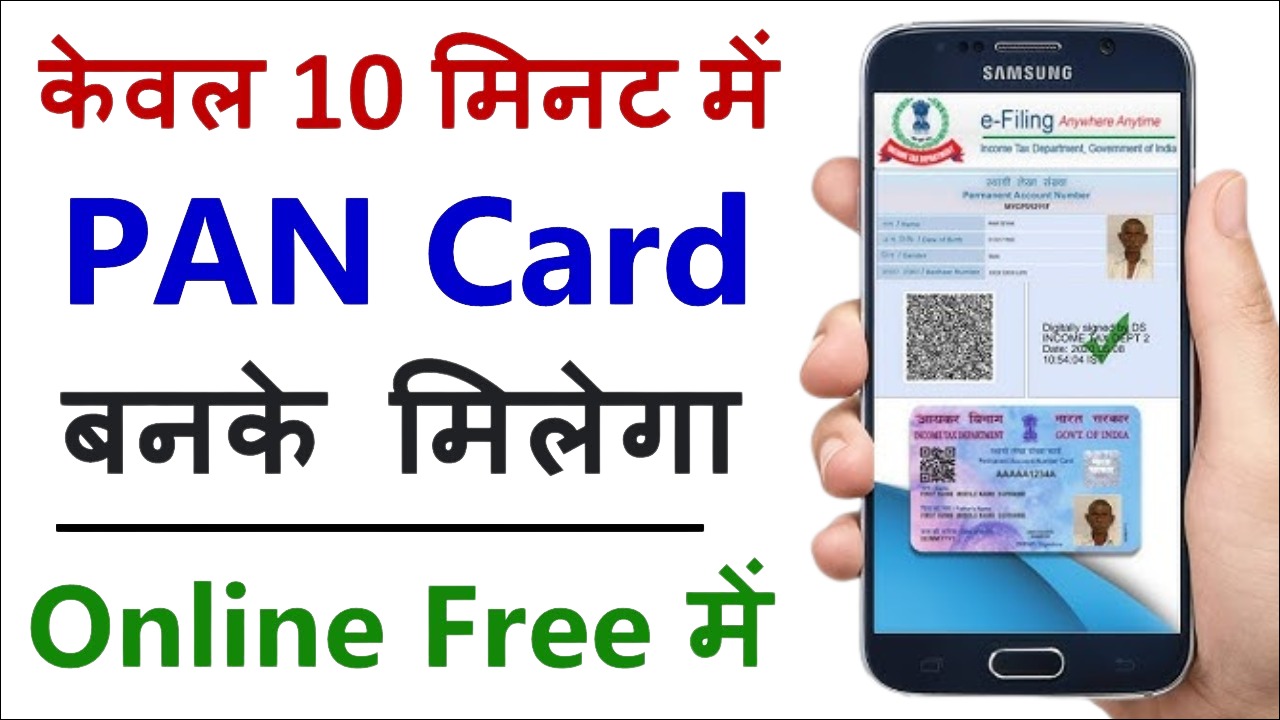The Permanent Account Number (PAN) is a unique 10-character alphanumeric identifier issued by the Income Tax Department of India. PAN is mandatory for filing taxes, opening bank accounts, investing in financial instruments, and conducting high-value financial transactions. This guide explains how to apply for a PAN card in 2025, including eligibility, documents required, application process, fees, and processing timeline.
Overview of PAN Card
| Category | Details |
|---|---|
| Issuing Authority | Income Tax Department of India |
| Purpose | Tax identification, financial transactions, investment tracking |
| Who Can Apply | Indian citizens, NRIs, foreign citizens eligible under Indian tax laws |
| Application Mode | Online (NSDL / UTIITSL portals) or offline |
| PAN Type | Individual, HUF, Company, Trust, Partnership, Association |
Purpose of Applying for a PAN Card
- Mandatory for filing income tax returns in India
- Required for opening bank accounts or conducting high-value transactions
- Needed for investments in mutual funds, shares, and property
- Helps prevent tax evasion and ensures compliance with Indian tax laws
Eligibility Criteria
- Any individual, company, trust, or entity earning taxable income in India
- NRIs and foreign citizens with taxable income or financial transactions in India
- Individuals seeking to open a bank account or conduct investments above the threshold limit
Documents Required
For Indian Citizens:
- Proof of Identity (Aadhar card, passport, voter ID, driving license)
- Proof of Address (Aadhar card, passport, utility bills, bank statement)
- Date of Birth proof (birth certificate, passport, matriculation certificate)
For NRIs / Foreign Citizens:
- Copy of passport
- Overseas address proof
- Indian address proof (if applicable)
- Photograph (recent passport size)
Application Process: Step-by-Step
Online Application
- Visit NSDL or UTIITSL official website
- Select “New PAN – Indian Citizen” or “New PAN – Foreign Citizen”
- Fill out the PAN application form (Form 49A for Indian citizens, 49AA for foreign citizens)
- Upload scanned copies of required documents and photograph
- Pay the PAN application fee online (INR 107 for Indian address, INR 1,017 for foreign address including courier)
- Submit the application and note the acknowledgment number for tracking
Offline Application
- Obtain the PAN application form (49A / 49AA) from PAN centers or TIN facilitation centers
- Fill the form carefully and attach self-attested copies of required documents
- Submit the form at the PAN center along with the application fee
- Collect acknowledgment receipt for tracking
Fees
| Application Type | Fee (Approx.) |
|---|---|
| Indian Address | ₹107 (including GST) |
| Foreign Address | ₹1,017 (including courier charges) |
Processing Timeline
- Online/Offline submission: 1–2 weeks for PAN processing
- PAN dispatch: 15–20 working days via postal service
- E-PAN delivery: Within 7 working days via email (digitally signed)
How PAN is Issued
- Verified documents are processed by NSDL / UTIITSL
- PAN is allocated by the Income Tax Department
- Physical PAN card is printed and dispatched, or an e-PAN is sent via email
Why It Matters
- Legal requirement for all taxable financial activities in India
- Prevents identity misuse in financial transactions
- Essential for seamless tax filing and compliance
- Facilitates opening bank accounts, investments, and property transactions
Final Takeaway
Applying for a PAN card in 2025 is a straightforward process, available both online and offline. Ensure all documents are accurate, fees are paid, and acknowledgment numbers are kept safe. A PAN card is indispensable for financial, banking, and investment activities in India.
FAQs
Q1: Can I apply for a PAN card online from abroad?
Yes, foreign citizens can apply online using Form 49AA and submit the required documents.
Q2: How long does it take to receive a PAN card?
Typically 15–20 working days for the physical card; e-PAN is delivered within 7 working days.
Q3: Is PAN mandatory for opening a bank account?
Yes, PAN is required for most bank accounts and financial transactions above ₹50,000.

